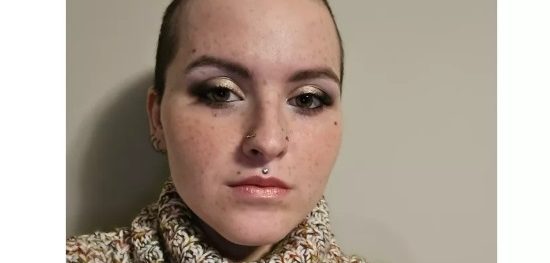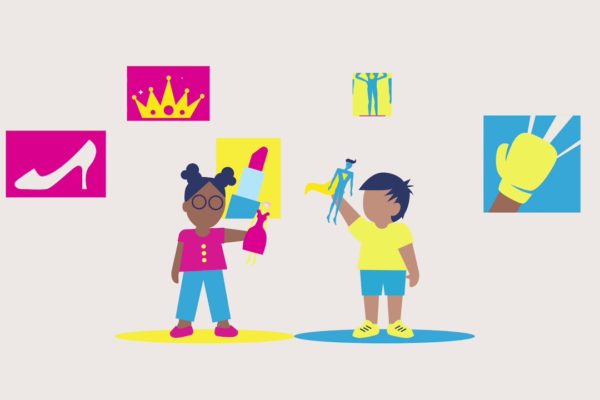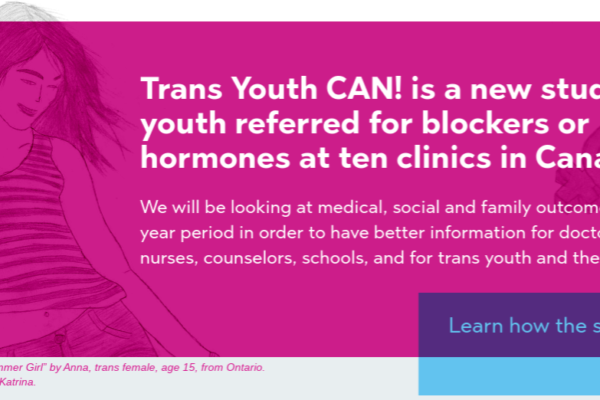Detransitioners and their families struggle to find help in Canada
Over 2 years ago, the mother of a detransitioner based in Saskatchewan reached out to Canadian Gender Report for help. Her first email to us is below:

Many Canadians seem to think that children and young people receive counselling to understand their gender distress before they take extreme and irreversible steps like sex-change surgeries. This is not the case. It was easy to get surgery to remove her breasts. It was a nightmare to find someone willing to make her look female again.
Isobel’s Story
My name is Isobel, I’m 24 years old. I’ve struggled with anxiety, depression, and body image issues since I was a young child. Puberty was very difficult for me. I felt such hatred and disgust for my growing female body and I couldn’t understand why. I struggled with an eating disorder and my self image was so bad that I couldn’t bring myself to look in the mirror and I could hardly leave the house. Due in part to this and in part to the fact that I was severely depressed, constantly anxious, and was dealing with at-the-time undiagnosed autism and ADHD (I was later diagnosed as an adult), I left public school at the age of 14. I tried homeschooling but found it no better as I was so wholly preoccupied with my mental struggles. All I could do was isolate myself from the world I felt I didn’t have a place in.
I spent a lot of time as a young teenager on social media sites where I found other young people who were struggling with the same things that I was. This was how I first discovered the idea of “transgender” and “transitioning”. Reading the stories of female-to-male teenagers, girls who identified as and lived as boys, was very eye-opening to me at the time. I had never felt any sort of connection to my being female; I felt I couldn’t relate to other girls and women no matter how hard I tried, and this had always been extremely distressing to me. No matter how I acted, how I dressed and styled myself, I felt so out of place in my female body. In retrospect I realize that among other things this was due to my body dysmorphia and my autism, but at the time, having just discovered the world of transgenderism, this seemed like the answer to a problem I’d been struggling with my entire life.
The way these girls described “gender dysphoria” sounded exactly like what I was experiencing. Unhappiness with being perceived as female, discomfort in my developing body, wanting to be somebody or something completely different. I decided to start identifying as male at the age of 15, cutting my hair, getting rid of all of my clothing and replacing it with men’s clothing, and presenting myself to the world as a male. At 16 I found a family doctor in Saskatoon that specialized in transgender medicine and was prescribed testosterone right away. I didn’t need the permissions of a psychiatrist or endocrinologist as I had previously thought. I just filled out a form acknowledging the changes that I would or could experience on testosterone and what couldn’t be reversed.
I presented myself as male for 5 years, but I began to have doubts about my decision to transition by the 2-year mark of my being on testosterone, at 18 years old. Despite this, I felt as if I had already gone too far and undergone too many irreversible changes that I couldn’t back down, and I felt too ashamed to even begin to think about admitting that I had made a mistake to those around me.
Despite my growing concerns, I decided to have “top surgery” to remove my breasts, as that was the logical next step in my transition. I had been binding my breasts severely for the past 5 years to appear more masculine. I contacted my family doctor, and we filled out the appropriate paperwork to send to the government in order to have the surgery covered financially. I was approved quickly and at 19 I went to Regina to have the procedure done. I felt happy at first, relief that I didn’t have to worry about trying to hide my breasts anymore, but that didn’t last long, and I started to regret my decision just a few months later.
I realized definitively at this point that I could never truly be male and that in trying to make myself comfortable in my own body, I was actually making things more difficult for myself. I realized I was just lying to myself and everybody around me. I felt as though I had ruined my body after years of damage from the testosterone and then the top surgery, and that I could never go back and would be stuck pretending to be a man for the rest of my life. I was so miserable. I finally broke down and stopped taking testosterone at the age of 20.
I felt so hopeless. I had ruined my body. Besides the top surgery, I had experienced a significant increase in body hair growth, a deepening of my voice, and my hairline was receding, among other changes. I felt as though my entire life was ruined because of a decision I had made as a young, hormonal, mentally ill teenager.
I do not believe I should have been allowed to make such a serious, life-changing decision at 16. I may have been a legal adult at 19 when I made the decision to have my breasts removed, but at that point I felt backed into a corner and like I had no other options. I believe it shouldn’t have been so easy for me to receive testosterone, and that my reasoning for why I wanted to change my gender in the first place should have been addressed before any kind of medical decisions were made.
I’m hoping that eventually things will change and children who experience “gender dysphoria” will have their underlying issues treated before they are rushed into transition. I don’t believe that anybody under the age of 18 should be able to make such serious, permanent, life-altering medical decisions for themselves. Undergoing medical transition is serious and I feel it is treated much too lightly.
I know there are many people out there who have transitioned and are feeling the same regrets as myself, and it’s very disturbing to me. There is no support for detransitioners and I just want to want all who are detransitioning, or who are questioning their transition, that they are not alone, and I wish you the best of luck and hope you find happiness in the future.”




